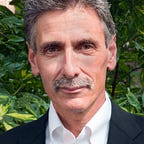Churches are providing psychedelics to their followers. Is that legal?
Some lawyers say plant-medicine churches are exercising their freedom of religion. Others advise caution. It’s complicated.
Rabbi Benjamin Gorelick is the founder and spiritual leader of the Sacred Tribe, a community of Jewish seekers in Denver that grows its own psilocybin mushrooms for use in religious ceremonies. He calls himself “the mushroom rabbi,” but law enforcement authorities regard him as a drug dealer. Police raided Sacred Tribe in January and charged Gorelick with suspicion of possession with intent to manufacture or distribute a controlled substance, a first-degree felony that carries a minimum sentence of eight years in prison.
The Hummingbird Church, by contrast, has built cooperative relationships with local authorities since it began providing ayahuasca in spiritual ceremonies held in Joshua Tree, California in 2018. Police once raised a church member’s home, seizing psilocybin mushrooms and cannabis plants, but no charges were filed. The church website invites those seeking healing to apply to join a ceremony, but warns: “If you are looking for just a psychedelic experience, you are in the wrong place. Our ceremonies are sacred and deeply spiritual.” So far, they’ve been left alone, says Courtney…
